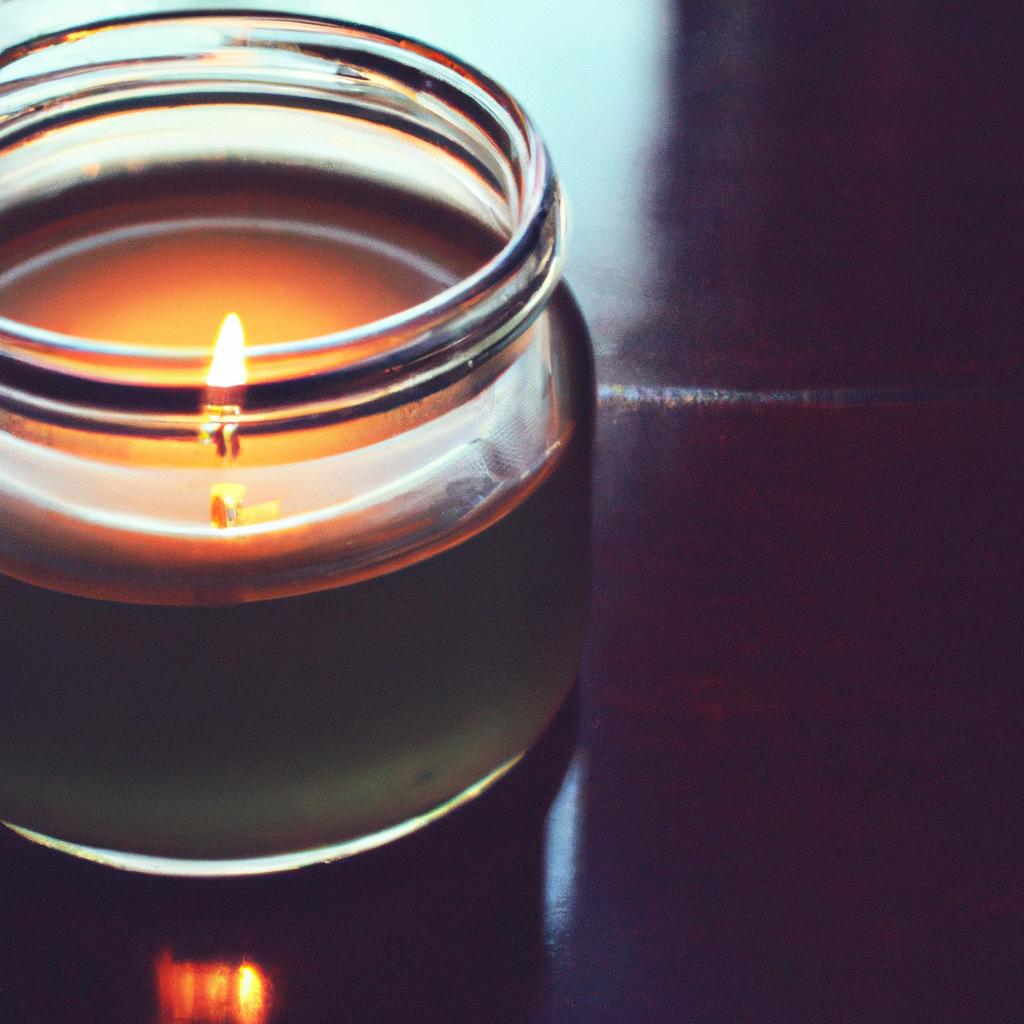Introduction: What is Self-Care and Why is it Important for Health and Wellness?
Self-care is the practice of taking action to preserve or improve one’s health, wellness, and well-being. It can be anything from physical activities such as exercise, to mental activities like practicing meditation or talking to a friend. Self-care includes activities that promote self-acceptance, self-love, and self-compassion. It is important for overall health and wellness because it can help to reduce stress, anxiety, and depression. It also improves relationships, builds resilience, and helps to develop emotional intelligence.
Self-care is not a one-size-fits-all concept. Different people have different needs in terms of what activities are most beneficial to them. It is important to create a self-care plan tailored to your individual needs and preferences. Making self-care a priority in your life is an important part of creating a healthy and balanced lifestyle.
Benefits of Incorporating Self-Care Practices into Your Daily Routine
We all know how important it is to take care of our bodies and minds. We often hear about the importance of physical activity and nutrition for health, but we don’t hear as much about the importance of self-care. Self-care is an important part of health and wellness and has been shown to reduce stress, improve immune function, and help us to maintain balance in our lives.
Self-care can be anything that helps you reconnect with yourself. This could include anything from taking a warm bath or reading a book, to going on a walk or spending time with your pet. All of these activities can help to replenish your energy and fill your cup so you can take on whatever comes your way. Incorporating self-care practices into your daily routine is essential for your health and wellbeing.
There are many benefits to practicing self-care on a regular basis. Here are some of the key advantages of adding self-care into your daily routine:
- Reduced stress levels – Taking time for yourself can help you relax and manage stress. This will improve your overall quality of life and mental health.
- Increased energy levels – Self-care activities can help to boost and regulate your energy, enabling you to tackle life’s daily tasks with ease.
- Improved concentration and productivity – When your energy is in balance, you are able to focus better and increase your productivity.
- Better sleep – Incorporating self-care into your day can help to improve the quality of your sleep. You will wake up feeling more rested and energized.
- Improved mood – Self-care can help to lift your mood and give you a mental boost.
These are just a few of the many advantages of incorporating self-care into your daily routine. As you can see, self-care is an essential part of health and well-being and should not be overlooked. So, now that you know why self-care is so important, let’s take a look at how you can add it into your daily routine.
How to Incorporate Self-Care into Your Work Day
It can be hard to fit in self-care activities when you’re busy at work. But, there are some strategies that can help you make time for yourself during the day while still getting your work done.
The first step is to take time to plan out your day and prioritize your tasks. Make sure to incorporate breaks throughout the day. You can set an alarm to remind yourself to take a break from work for a few minutes. During your break, you can do some stretching, have a quick walk, or just take a few moments to clear your head.
The key to self-care in the workplace is to remember to take care of yourself amidst all your responsibilities. Set aside time to focus on yourself during the day, even if it’s just 5-10 minutes. Take this time to practice a calming activity like meditation, journaling or listening to music. This can help you stay focused and productive.
If possible, try to get up and move around throughout the day. You can take a quick walk, go up and down the stairs a few times, or do some quick stretches. Getting some physical activity can help increase your energy, boost your mood, and improve your concentration.
You should also take advantage of lunch and snack breaks to nourish your body with healthy snacks and meals. Eating nutritious foods can help keep you energized and focused for the rest of the day. Pay attention to portion sizes and limit foods high in sugar and processed ingredients.
Finally, don’t forget to get plenty of sleep. Aim for 7-9 hours of sleep each night to allow your body and mind to rest and recharge. Without adequate sleep, you will be more likely to feel drained and stressed, which can affect your productivity.
By taking the time to incorporate self-care activities into your daily routine, you can improve your health and wellness while still staying productive at work.
Creating a Self-Care Routine that Fits Your Lifestyle
Self-care is about taking the time to take care of yourself – emotionally, physically, and mentally. It can look different for everyone, but ultimately it’s about finding balance in your life and doing things that make you feel happier and healthier. It’s important to create a self-care routine that works for you and fits into your lifestyle so that you can start making it a part of your daily life.
To start, try to think of the activities that you find enjoyable and make you feel relaxed, such as yoga, meditation, reading, writing, or any physical activity you enjoy. Next, break it down into manageable chunks – if you can only commit to 10 minutes of meditation every day, then do that. Every minute counts! Furthermore, think about when and where it’s easiest for you to fit it into your day. Is it best to wake up 10 minutes earlier and fit it into the morning? Or maybe it’s better to take a break during lunch.
You don’t have to do the same thing every day but it’s important to have some structure so you don’t get overwhelmed. Establishing a routine and seeing it through will help develop habits that will eventually become second nature. Don’t be afraid to try something new if you don’t like the routine you have, and don’t feel bad about skipping a day if you need it.
When creating a self-care routine, be mindful of how much time you can realistically commit, as well as what activities make you feel most relaxed. You don’t want to create a routine that’s too overwhelming or something you can’t stick to. Lastly, remember that it’s okay to take a break from your routine if you need to. Give yourself grace and forgive yourself if you don’t stick to it 100%.
Adding Mindfulness to Your Self-Care Routines
Mindfulness is the practice of being present in the moment and taking notice of your thoughts, feelings, physical sensations and environment. It is a powerful tool that can be incorporated into your self-care routines to bring greater peace, awareness, and connection to your life.
Incorporating mindfulness into your self-care practice can improve your overall health and wellbeing by allowing you to be in touch with what’s going on inside of you. It can help you become better attuned to your emotions, allowing you to better understand them and find ways to address them. Additionally, practicing mindfulness has been linked to increased resilience in the face of stress, improved concentration, and reduced anxiety and depression symptoms.
Mindful practices come in many forms. Simple activities such as taking deep breaths, getting outside and enjoying nature, practicing yoga, listening to music, or engaging in creative activities can help you stay mindful in the present moment. Taking just a few moments a day to be mindful can help you relax and feel more connected to yourself and the world around you.
You can also incorporate self-care into mindfulness practices through activities such as journaling, meditation, or using guided imagery. Writing down your thoughts and feelings can help you keep track of and better understand your emotions. Meditation and guided imagery help to reduce stress and distract from negative thoughts. They can also help you tap into a deep sense of calm and inner peace.
No matter which mindful practice you choose, the important thing is to set aside a few minutes every day for self-reflection and mindfulness. This will help you stay in tune with your needs and create beacons of stability and self-awareness when things feel overwhelming.
Healthy Habits to Include in Your Self-Care Routine
Incorporating healthy habits into your daily routine is essential for establishing and maintaining good mental health. Self-care doesn’t have to be tedious or difficult – small changes can make a big difference. Here are some easy, practical habits to help you stay healthy:
- Schedule in “me time”: Spare some time each day (10-15 minutes, for example) just for yourself, and use it however you wish. This could mean going for a short walk outdoors, or even just sitting and reading a book. Establishing and honoring this daily “me time” will make you feel more balanced and put you in a better mood.
- Make time for physical activity: Exercise helps reduce stress, anxiety and depression levels. Choose an activity that you enjoy, and devote at least 30 minutes of your day to it. This doesn’t necessarily mean hitting the gym – anything from a brisk walk to yoga or even dancing can be a good way to switch off.
- Eat nutritious food: Our bodies need fuel to function properly, and exercise isn’t enough on its own. Eating fresh, unprocessed foods such as fruits, vegetables, legumes and lean proteins can help boost your energy levels and support a healthy lifestyle.
- Drink water: Hydration increases our ability to think clearer, and enables us to perform physical activities more efficiently. Aim to drink 6-8 glasses of water a day to keep your body functioning optimally.
- Get enough sleep: Sleep deprivation can have a huge impact on our wellbeing, leading to impaired memory and reduced mental clarity. Establish a regular sleeping pattern and aim to get 7-8 hours of sleep per night.
- Be mindful: Taking time to appreciate the present moment is an important part of self-care. Set aside a few moments each day to practice mindful breathing, or other relaxation techniques like meditation or yoga.
With a few simple adjustments to your daily routines, you can make health and wellness a priority in your life. Taking care of yourself helps ensure that you’re energized and motivated, so you can take on the world and all it has to offer!
Conclusion: How to Integrate Self-Care Into Your Everyday Life
Self-care is an important part of maintaining overall health and wellness. By creating a self-care routine that fits your lifestyle, you can ensure that you are taking care of yourself in the best way possible. Incorporating self-care activities into your day can be daunting, but you can make it easier by adding in small yet meaningful habits. These habits can range from something as simple as taking five minutes to yourself to something like setting specific times for meals or exercise.
These self-care practices should also include some form of mindfulness. Mindfulness practices can involve anything from deep breathing exercises to meditation. By incorporating mindful practices, you can begin to understand more about yourself and how you react to different situations in life. You may even find that you are more productive during your day when you take time for yourself.
Incorporating self-care and mindfulness into your daily routine not only benefits your physical health, but it also helps with mental and emotional wellbeing. Taking time to practice self-care can help reduce stress and anxiety, and it can also be beneficial in building healthier relationships with yourself and those around you.
The key to integrating self-care into your everyday life is to start small and focus on what works best for you. Even if you can only carve out 15 minutes each day, make sure to use that time to focus on yourself and do something that makes you feel grounded and relaxed.
comments: 0




